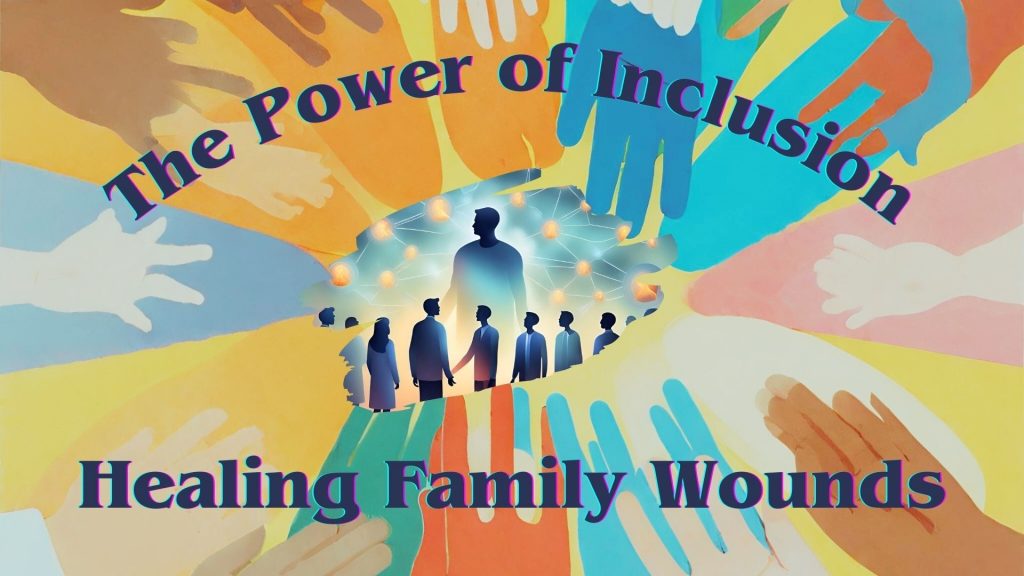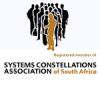Healing Family Wounds: The Healing Power of Inclusion vs. Exclusion
2023-10-07

“Healing family wounds” as a personal growth path entails a deliberate and introspective process aimed at acknowledging and resolving emotional, psychological, or relational scars within one’s family history and dynamics. This transformative journey involves self-awareness, emotional healing, forgiveness, and breaking generational patterns, ultimately leading to increased resilience, improved relationships, and enhanced self-compassion. It fosters a deeper understanding of oneself, empowers personal growth, and paves the way for a more fulfilling and harmonious life, both within the family unit and in broader social and personal contexts.
Family is often referred to as the anchor in the storm of life, offering support, love, and shared experiences. However, beneath the surface of these cherished connections, family dynamics can sometimes hide unresolved conflicts, lingering wounds, and emotional scars. When faced with this pain, we might wonder: Should we distance ourselves from our family or exclude certain members to escape the turmoil, or should we embrace the path of healing? In this blog post, we’ll explore why healing family wounds is not just important but transformative and how the power of inclusion can lead to resolution and lasting peace.
The Significance of Healing Family Wounds
Unresolved family wounds can have a profound impact on our emotional well-being. They often manifest as stress, anxiety, depression, or even physical health issues. By healing these wounds, we release emotional burdens and pave the way for inner peace.
Healing family wounds can mend fractured relationships within the family. While exclusion or distancing might offer temporary relief, it rarely addresses the root causes of conflict. By healing these wounds, we can rebuild trust, foster open communication, and strengthen the bonds that make families extraordinary.
Unhealed family wounds can be passed down through generations. Children often learn from their parent’s behavior and may carry the emotional baggage of past family conflicts into their own relationships and families. By healing these wounds, we break the cycle and create a healthier legacy for future generations.
Conflict is a natural part of family life, but when left unresolved, it can escalate and lead to more significant problems. Healing family wounds involves acknowledging past conflicts and finding constructive ways to resolve them, preventing further damage.
A family’s identity and sense of belonging are shaped by its history and the way it handles conflicts and challenges. Healing family wounds contributes to a positive family identity, where members feel connected and supported.
The Healing Power of Inclusion
When we include ourselves in the healing process, we gain a deeper understanding of the family dynamics and our own role within them. This understanding is a crucial step toward resolving conflicts and finding closure.
Inclusion fosters empathy. It allows us to see the perspectives of other family members and recognize the pain they might be carrying. This empathy can lead to forgiveness, which is often a crucial part of the healing process.
Inclusion encourages open and honest communication within the family. When everyone is willing to engage in the healing process, it becomes easier to address issues and work toward solutions together.
Inclusion can lead to reconciliation with estranged family members. While not all conflicts can be resolved, making an effort to heal wounds can sometimes lead to unexpected and positive outcomes.
Healing family wounds is a challenging but deeply rewarding journey. While the temptation to exclude oneself or certain family members may provide temporary relief, it rarely leads to long-term healing. Inclusion, on the other hand, empowers us to understand, empathize, communicate, and ultimately reconcile with our loved ones. It allows us to break the cycle of generational pain and build stronger, more harmonious family relationships. So, when faced with family wounds, consider the healing power of inclusion—it might just be the path to lasting peace and happiness for you and your family.


Recent Comments